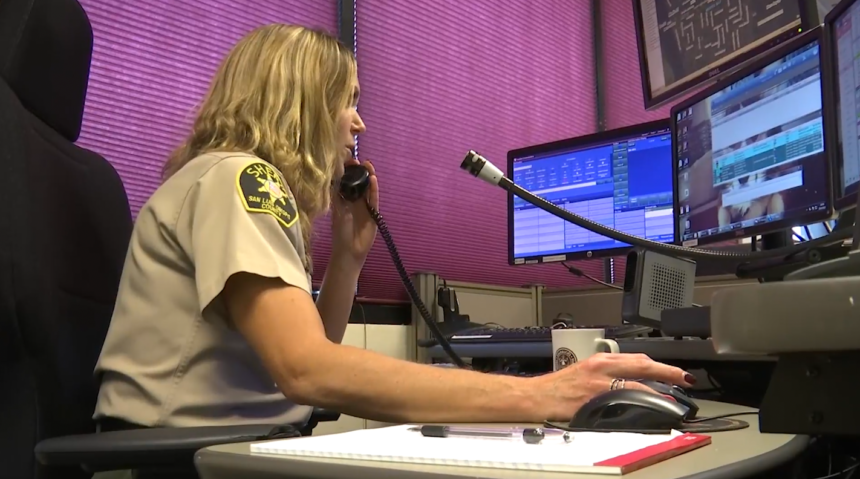Public safety agencies honoring dispatchers, while also looking to fill staffing shortages

SANTA MARA, Calif. -- Public safety agencies across the country are taking time this week to honor dispatcher workers during National Public Safety Communications Week, which runs from April 10-16.
"Our public safety dispatchers and call takers are an extraordinary group of women and men who answer calls for help 24 hours a day, 365 days a year," Santa Barbara County Sheriff Bill Brown said in a statement. "Answering calls for help from members of the public and dispatching cops, paramedics and firefighters to law enforcement, medical and fire emergencies, many of which are interconnected, requires great levels of dedication to duty, coolness under extreme conditions, technical skills, an outstanding ability to communicate, and large doses of tact, patience, common sense and empathy for the plight of others. We could not do our work without emergency communicators; they make a difference and earn our respect each and every day.”
Others who work in law enforcement are also taking time this week to applaud the efforts and contributions of dispatchers and call takers.
"I have huge amount of respect for dispatchers for everything that they do," said Lt. Paul Van Meel, Santa Maria Police Department. "Everyone focuses on police or fire, but the reality is, for police and fire and ambulance, we all rely on dispatchers to do their part and share the work, and without them, we certainly wouldn't be as safe, and we wouldn't be as efficient or effective in what we do."
After years of serving in the background, public safety communication workers are now receiving more public attention.
In September 2020, Gov. Gavin Newsom signed a bill into law that the officially reclassifies dispatchers as first responders.
"They are answering the call when you have one of your worst days, and when you need help, they're the ones that answer the call," said Santa Barbara County Sheriff's Office public information officer Raquel Zick, who worked as a full time dispatcher for six years. "It's a very important job. It's one of those that you don't see in the public sector, but they are a really great group of people. They work together as a team to come together and answer the calls for major emergencies and get help to people when they need it."
The recognition comes at the same time public safety agencies are facing staffing shortages in their dispatch departments, including many on the Central Coast.
"It seems to me to be pretty common for short staffing issues," said Mindy Conde, San Luis Obispo County Sheriff's Office dispatch supervisor. "It is a high stress job. We work long hours. People tend to get burned out or leave for that reason. Short staffing is definitely an issue. When you're working 10-12 hours shifts regularly, it can take its toll."
Conde said the department currently has four openings, but said the Sheriff's Office in the various stages of filing those spots.
"We're in a tough spot in staffing right now, but we're hopeful since we have applicants coming through, so hopefully it's a temporary state."
The Santa Barbara County Sheriff's Office also has a handful of dispatch positions to fill.
Zick said the department will attend several job fairs and other events, such as the upcoming Santa Maria Valley Strawberry Festival, in an attempt to recruit applicants.
"It's a really great opportunity to make a difference in your community," said Zick. "It's so rewarding to be the person that when people are having their absolute worst day and some very critical moments in their life, to be the person that answers the phone. To be the person who answers that call, and is able to get help to people when they need it."
In Santa Maria, the police department is also looking to fill dispatch positions and is offering financial incentives to help in its recruitment efforts.
Van Meel, who said his mother worked as a dispatcher for 25 years, said it takes an incredible amount of talent to work the position, which can be extremely demanding and stressful, but also rewarding at the same time.
"They are a voice on the other side of a phone line, but they're multitasking like nothing I've ever seen," said Van Meel. "They're dealing with all these different computer screens. They're typing. They're talking and as they're talking to the person calling, they're determining what units need to be sent, where and what other things are going on in the city, and they need to be cognizant of all the that. They don't have the luxury of having just one-track thinking. Every call that comes in, every 911 call, they have to think on several different levels at the same time and it's a remarkable feat."
